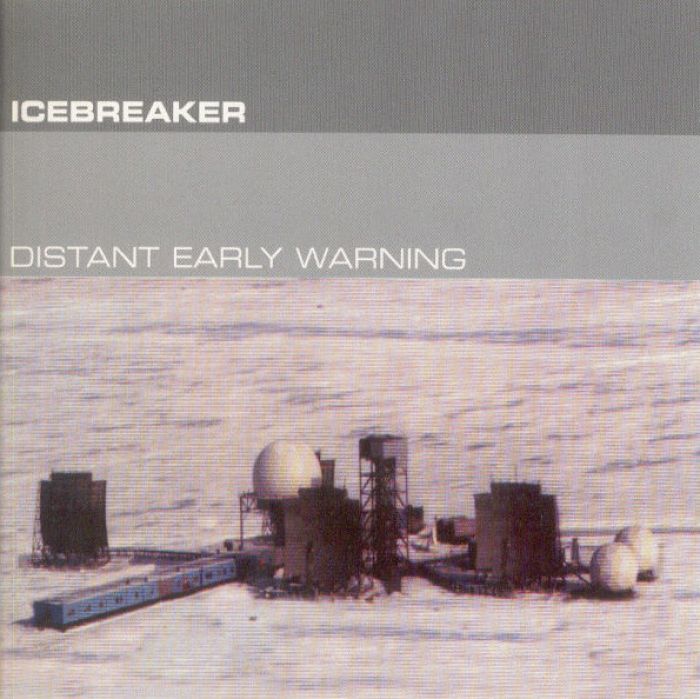Distant Early Warning by Icebreaker International (Review)

I tend to be a little leery of overtly political bands, nearly as much as I am of overtly religious bands. So much of the time, the aesthetics are sacrificed for the agenda, and both suffer as a result. Sure, I like a good old-fashioned rant from the soapbox (or a fire and brimstone sermon) as much as the next politically-disassociated member of my generation… but not when it gets in the way of my rock n’ roll. Now “rock n’ roll” is probably going to be the last thing that you’ll think of while listening to Distant Early Warning. But then, the same goes for “political.”
The band claims that Distant Early Warning is “music for an accidental apocalypse,” a description that carries all sorts of interesting imagery, one full of drama, tragedy, and all manners of sturm und drang. But that’s decidedly at odds with the sparse and relatively uninteresting ambient textures that fill Distant Early Warning, both musically and thematically.
The album starts off in fine form, though. Beginning with the sounds of the GPS, “Melody for NATO” soon settles into a pleasant balance between a delicately shifting harpischord-like melody and some fluttering organs and sparse drumwork reminiscent of Low’s Mimi Parker. There’s really nothing “apocalyptic” about it at all, but something resembling (and practically one-upping) the atmospherics of groups like Tristeza. “Co-Prosperity Sphere” takes on a colder, more alien feel with its undulating organ melody and analog drones.
The feel here is much more in line with the imagery conveyed by the album’s title and artwork, like the final transmissions from a lone arctic station before the long winter sets in. But after that, the album gets fairly hit or miss, with the emphasis on “miss.”
“The Arctic Night” begins with subtle drones and muffled clangings that conjure up the alien winter that now surrounds the aforementioned station, but like six months of cold and dark, it quickly gets monotonous. Likewise, “Reconnaissance Flight” never rises above its creakings, groanings, and reverbed piano. There always seems to be some missing element, and even as the sounds get more insistent and the drones get more ominous, it never coalesces into anything more than its disparate noises. And then there’s “The Track North,” which takes the icy organ tones found all over the album and stretches them (and the listener’s patience) as far as they’ll go over the course of three minutes, only to disappear into a muted jumble of glitchy, digital noise.
I had some hope the album might end on a strong note as soon as “Listening Station” locked into its undulating rhythm, propelled by wavering GPS signals and an insistent beat. One almost expects to hear Laetitia Sadier chime in at anytime, cooing sweet Marxisms and whatnot. But alas, no such thing happens, and song gets trapped in its own groove for over eight minutes before finally giving way to the same pulsing tones that opened the album.
Despite the band’s subtle political meanderings, Cold War imagery, and concerns for international stability, there’s something very ambivalent about this record. I found myself waiting for something, anything, to filter its way through the long, tedious sounds that make up Distant Early Warning. Something to drive home the issues that Icebreaker International insists are the focus of their music.
Instead, I’m left scratching my head as to what it is exactly that Icebreaker International is trying to accomplish with their music. As it stands, Distant Early Warning would make a far better soundtrack for a documentary or art exhibit that dealt with the group’s political concern(s). Otherwise, there’s very little here, politically or musically, that’s worth caring all that much about.